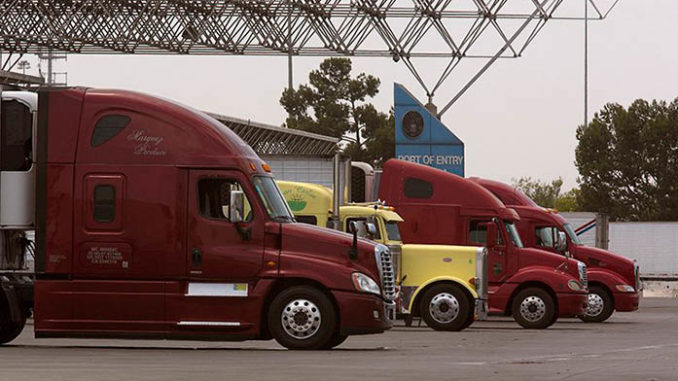
Every day, Arizona’s trucking industry is called upon to move our nation’s food, energy, and manufactured goods from the fields and factories to consumers across the country. Unfortunately, Arizona’s trucking companies and the customers they serve are increasingly competing against a relentless adversary. Hint: It’s not China or Europe. It’s America’s own regulatory juggernaut.
Over the last several years, regulators in Washington, DC, have been in overdrive promulgating reams of new rules and guidance that make it harder for businesses—particularly small businesses—to operate. While larger corporations are able to comply with these new regulations, other companies that can’t afford to hire battalions of lawyers are getting squeezed.
Just one recent example is the National Ambient Air Quality Standards (NAAQS) for a pollutant called PM2.5, which is in the final stages of review by the Biden administration. PM2.5 is a common byproduct of vehicle emissions, construction activities, and manufacturing and agricultural processes, among other things. As many residents of the West know all too well, some of the biggest sources of PM2.5 emissions are wildfires and the prevention and mitigation methods, such as prescribed burns, that are deployed to restrict wildfire spread. It’s no surprise then that the draconian PM2.5 limits being considered by the EPA and the White House would have severe and wide-ranging impacts on entire industries and regions of the U.S., including large parts of Arizona that would struggle to come into attainment with the new NAAQS regulations.
In addition to the direct impacts to sectors that would need to shell out billions of dollars on retrofits and new equipment, such as costly truck fleets, these tightened standards would increase costs for a vast array of products which will push up prices for consumers and businesses everywhere. This comes at a time when the U.S. is making tremendous progress in improving our air quality—including a nearly 90% reduction in vehicle and transportation-related emissions.
For organizations like the Arizona Trucking Association, a particularly concerning effect of finalizing an unachievable PM2.5 rule is potential restrictions on federal highway funding. This is one of the consequences facing nonattainment areas that doesn’t get as much attention. Upgrading our nation’s transportation infrastructure has been a top priority of President Biden and congressional leaders. Our elected leaders have also placed an emphasis on repairing our supply chains after the disruptions that occurred during the depths of the pandemic. All of these efforts would be undermined by air quality regulations that prevent our nation’s fastest growing areas—Arizona in particular—from pursuing the infrastructure projects we need to accommodate growing populations and consumer demand.
Environmental standards are just one segment of the intensifying regulatory maze that Arizona businesses are contending with on a daily basis. A new study from the national Association of Manufacturers found that the total cost of complying with federal regulations in 2022 came out to over $3 trillion dollars—or 12% of U.S. GDP. The study also found that a small business with 20 employees faces more than $1 million in compliance costs. In an environment of high input prices and fragile economic conditions, $1 million in federal regulatory compliance is enough to break the back of a small business trying to make ends meet.
The Biden administration should reconsider its regulatory full court press and start looking for ways to reduce—not compound—the burden of new rules coming out of Washington. Finalizing a workable NAAQS PM2.5 proposal is a good place to start.
Tony Bradley is President & CEO of the Arizona Trucking Association
